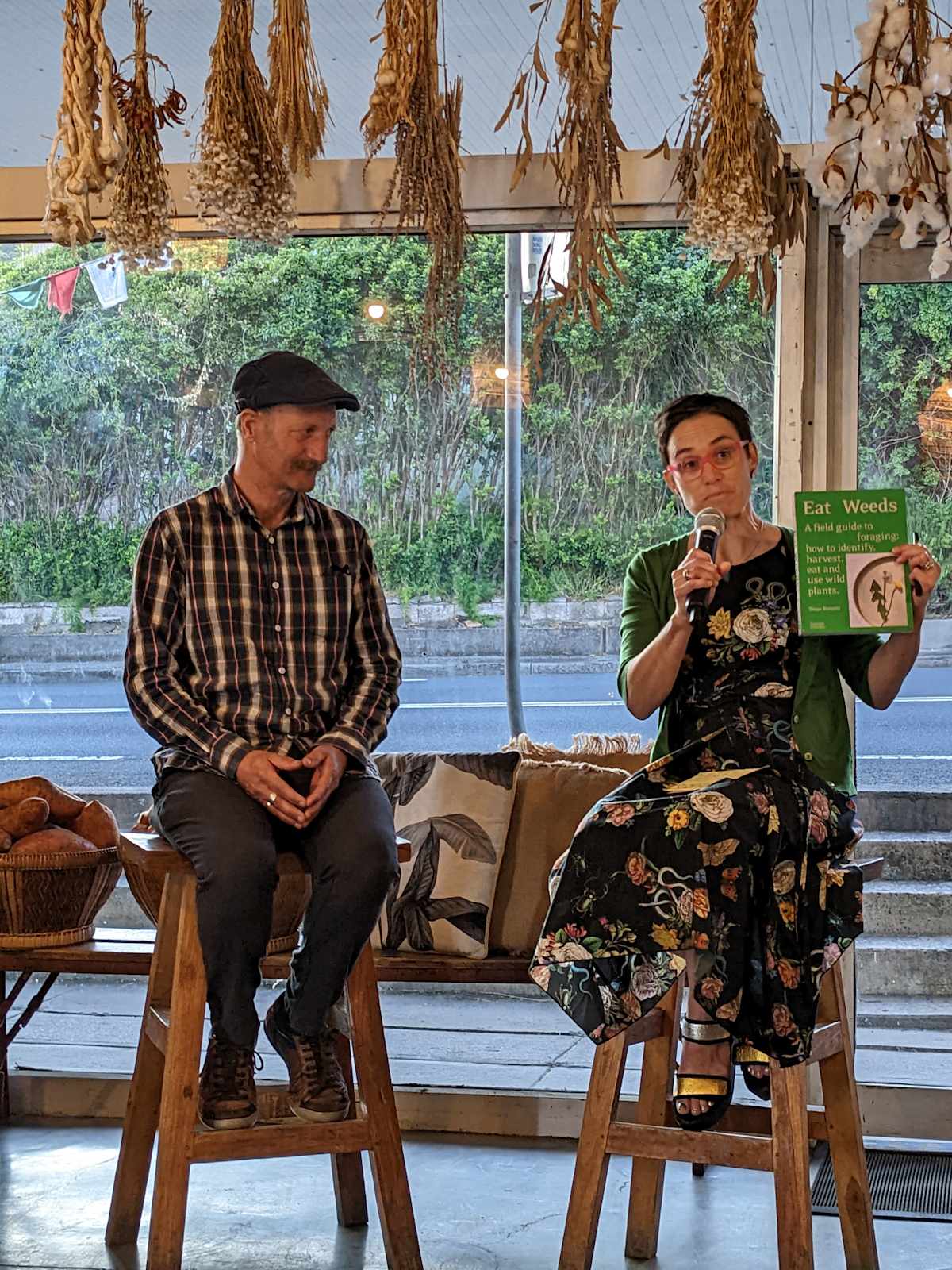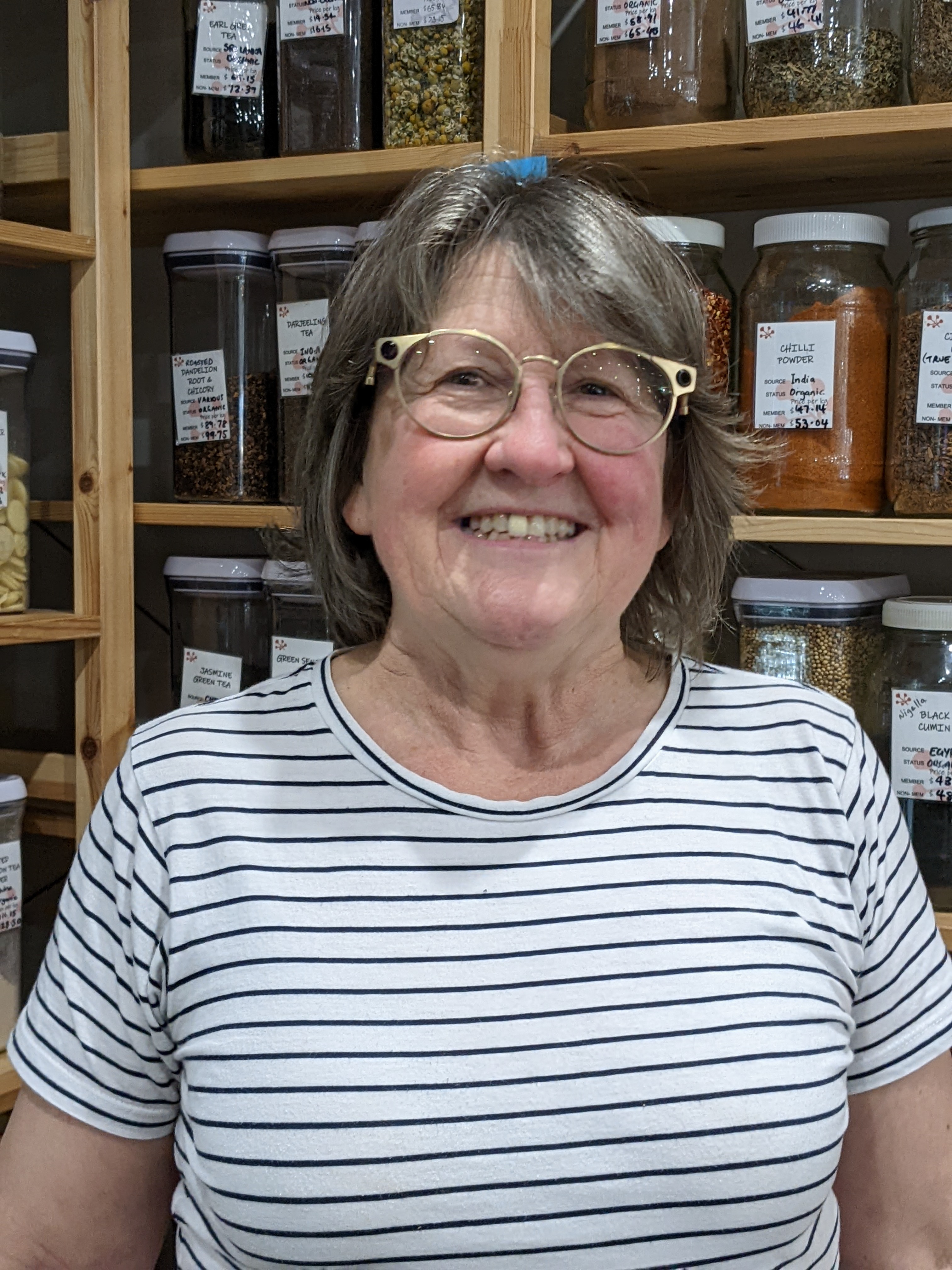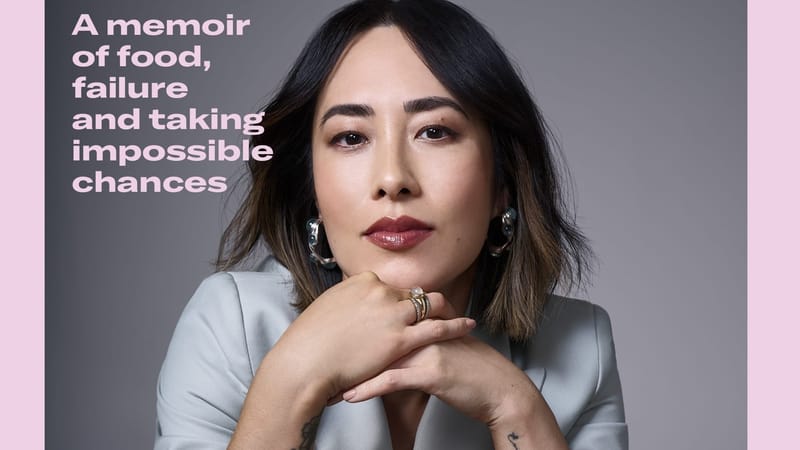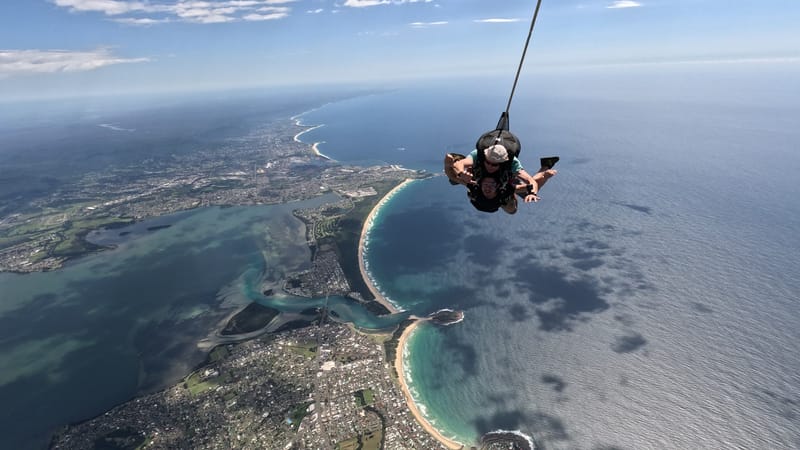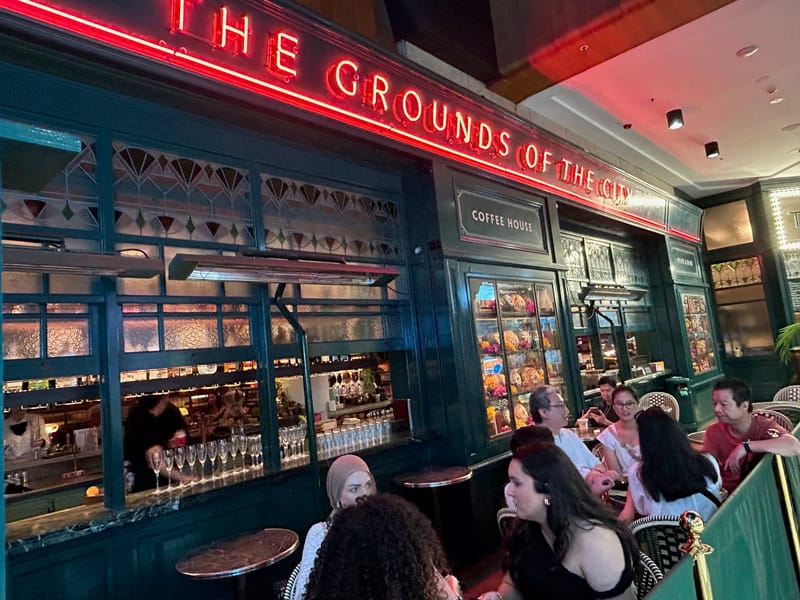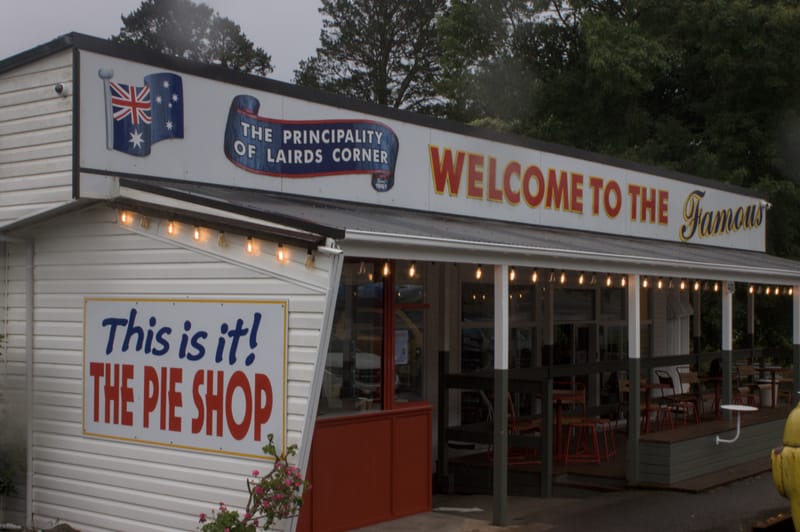Readers enjoyed a feast of books and local produce
Two experts in their fields shared their knowledge at the end of the first day of the true storytelling workshop.
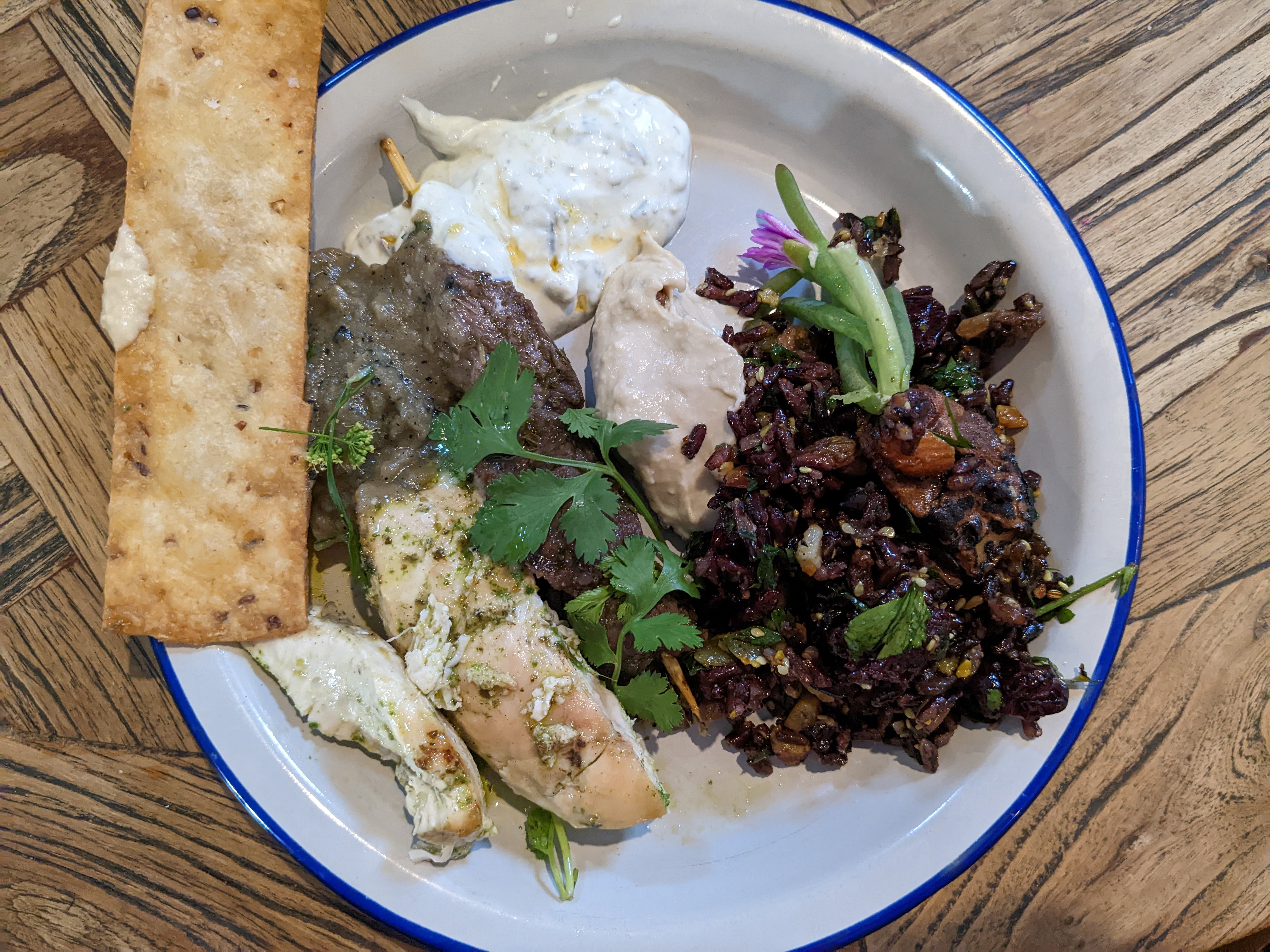
Hundreds of readers attended I Am Not Making This Up, the Illawarra's newest literary festival, last weekend, November 26 and 27. The two-day festival of true storytelling at Coledale Community Hall featured candid conversations with some the most distinctive voices in non-fiction today, thought-provoking questions from the audience and long queues for book signings – a resounding success all round!
The feast for book lovers also included a showcase of local produce, with two experts in their fields sharing their knowledge on the Saturday evening.
A Masterclass in Award-Winning Cider
Glenbernie Orchard at Darkes Forest is a sixth-generation family-run business. The Fahey family began farming on the site in 1939 then started growing apples and stone fruit in the 1950s. Today, they have 100 acres with 22,500 fruit trees.
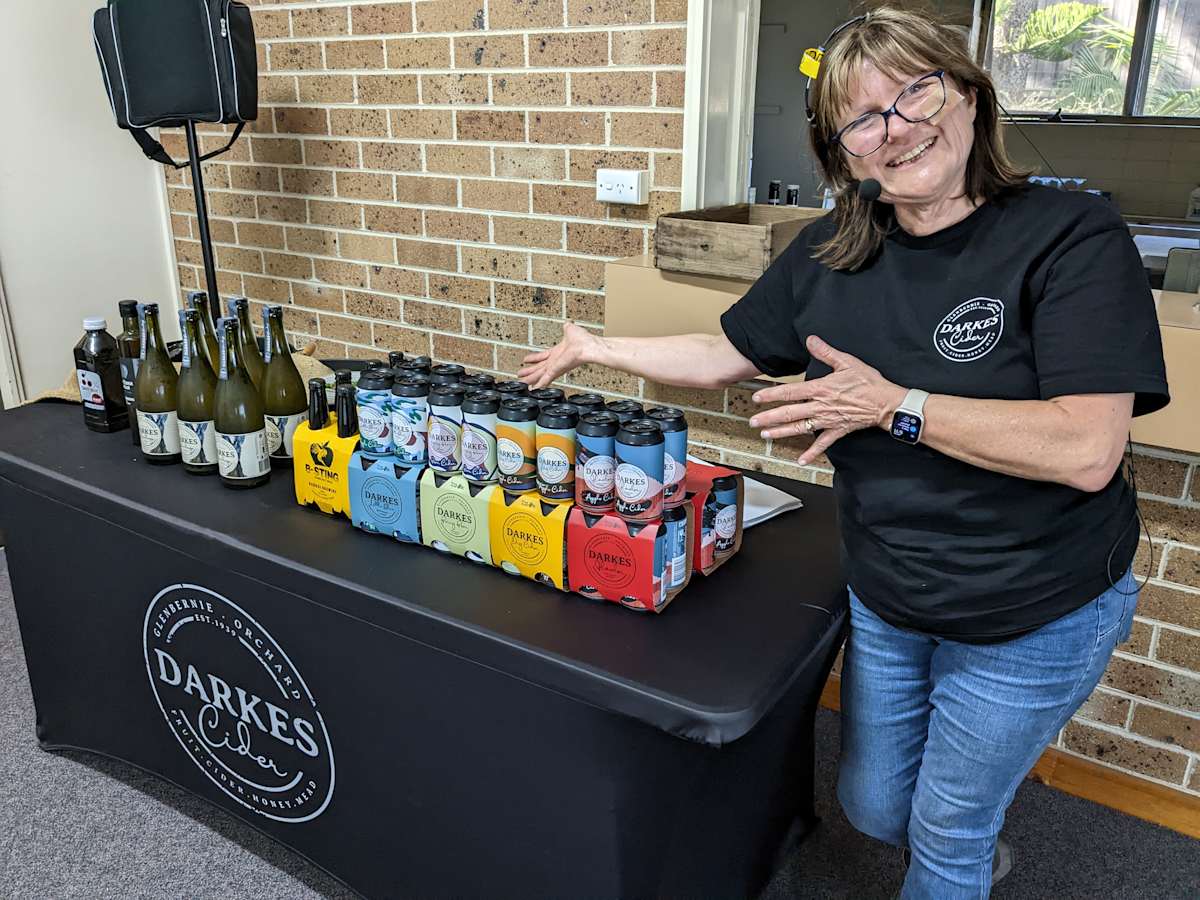
Jo Fahey, the CEO and Darkes Cider manager, convened a group of about 25 people eager to taste the ciders. Jo began by explaining the difference between “old world” or cooking apples and “new world” or culinary apples, any of which can make cider.
Cider is a fermented drink made from apples, so is more like wine than beer (although apples have less sugar than grapes and a lower alcohol content than wine). The process involves crushing the apples and allowing yeast (introduced or wild) to ferment the natural sugars in the apples. The result is an alcoholic, effervescent, thirst-quenching drink.
We tasted several ciders from dry to medium sweet, the non-alcoholic Little Blue, the Perry (the name for pear cider) and B-Sting (honey mead). Jo taught us how to “rouse” or mix the dry Hermitage so that the sediment became part of the drink, improving mouthfeel. We were invited to make additions of mint, lime, cherry juice or apple cider vinegar. We were warned of the dangers of drinking too much Perry owing to the presence of the unfermented sugar sorbitol possibly causing digestion issues. Each can contains the equivalent of at least four pears. The apples for all the Darkes ciders are grown on the farm, and Glenbernie swaps apples for pears with a pear orchard in Orange to make the Perry.

This month Perry was awarded a gold medal at the 2022 Australian Cider Awards and in 2021 it won Overall World’s Best Sparkling Perry at London's World Cider Awards. The medium-sweet Howler (the first cider produced by the Glenbernie team) and the Dry have also won international awards.
We learnt what foods to pair with each of the drinks. Also covered were the uses of the different ciders in recipes and cooking – for example, use the Perry to poach pears and the apple cider in pork dishes.
You can buy all Glenbernie products on their website or make a day of it and visit the farm and the AppleShack shop at 259 Darkes Forest Road, Darkes Forest. Glenbernie apples, juice and Little Blue are also sold through Thirroul's Flame Tree Co-op.
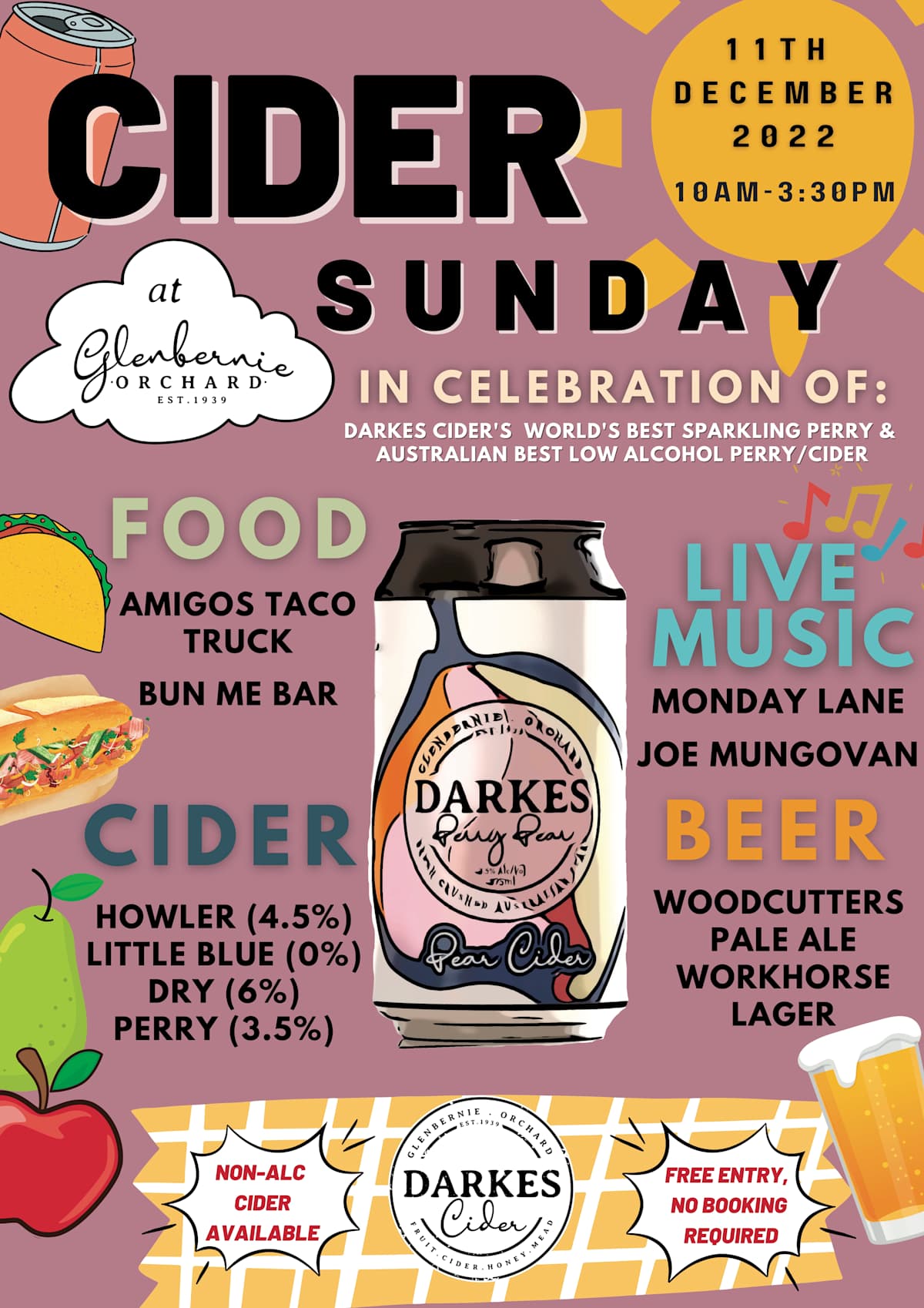
Foraging with Diego at Earthwalker
Earthwalker cafe in Coledale was the perfect location for a meal and a chat with Diego “The Weedy One” Bonetto. The full house was treated to a delicious meal that included foraged foods such as pickled seaweed and wild fennel.
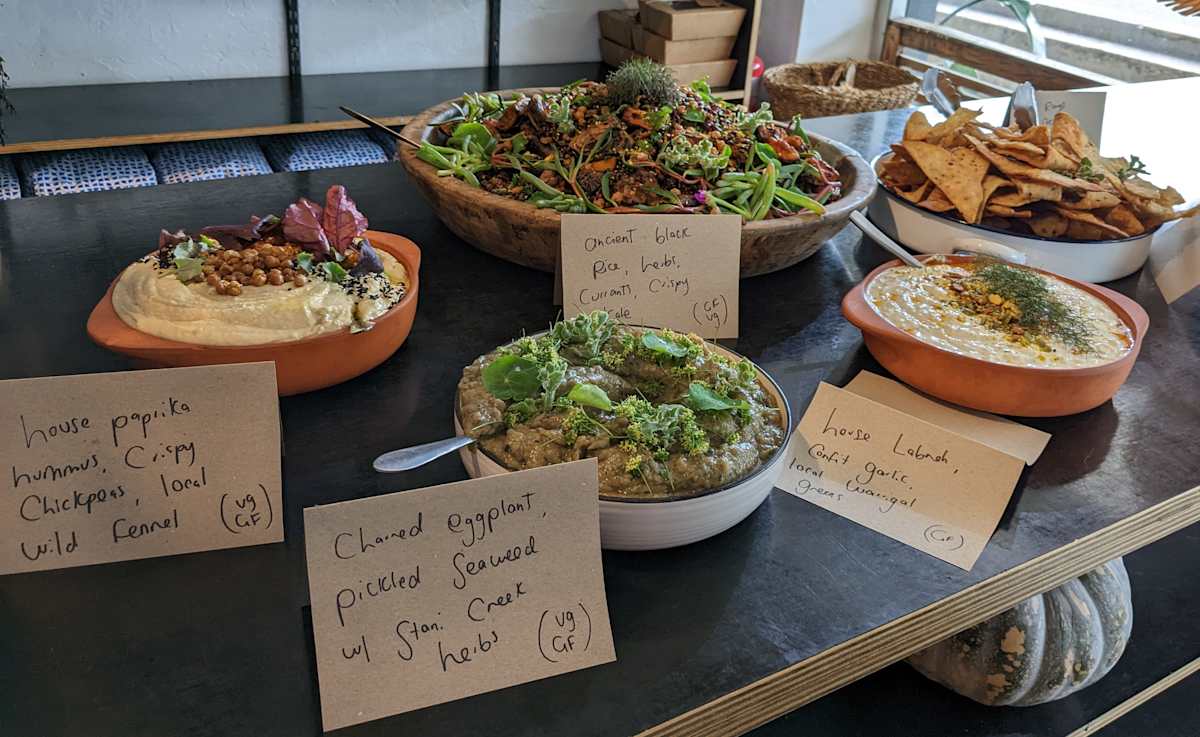
After dinner, local producer and podcaster Jennifer Macey interviewed Diego about his work. We learned about Diego’s lifelong foraging – born of necessity as a child in northern Italy – and his desire to help everyone see "the food and medicine" that surrounds us. Diego talked about his hands-on workshops and explains who attends: families with kids wanting to get back to nature, gardeners, bush regenerators, old migrants (“who know it all”), survivalists and journalists. He explains that foraged food is not survivalist food but a ready supplemental source of essential nutrients.
In his book, Eat Weeds, Diego writes: “Three generations ago it was still common practice all over the world to collect wild food as part of our regular intake of nutrients. Two generations ago, wild food harvesting started to decline, coinciding with the advent of supermarket culture, monocultural systems of food production and escalating urbanisation.”
Diego is now inspiring a new generation of wild food foragers, generously sharing information about the what, where and how of finding plants and seaweed. He is an advocate for “edible cities” and says, “You don’t need to walk to the top of a mountain to find food. It’s outside your door.”
Read about the food that is readily available to us in Diego’s book, Eat Weeds, and his blog.
